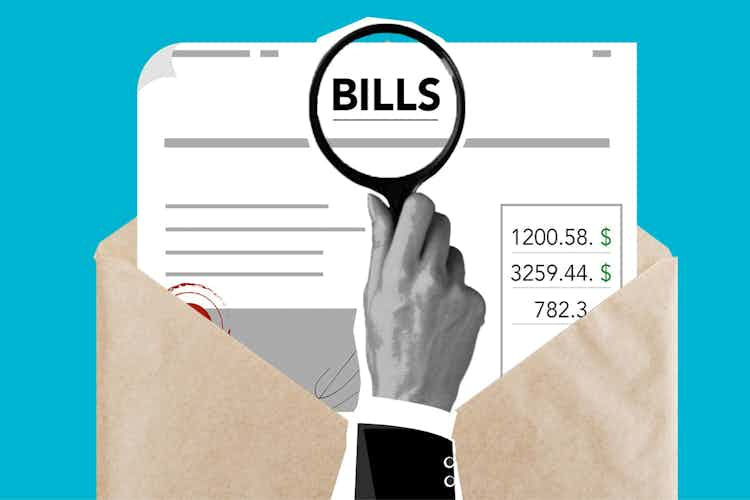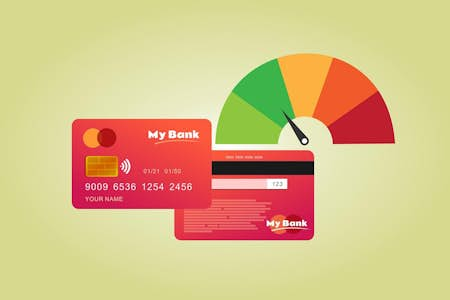Money comes, money goes, but how important is it to know how? It might not seem vital that you know the technical differences between direct debits, standing orders, and regular card payments. However, doing so save you phone calls and headaches galore.
In this guide to the various regular payments leaving your bank account, we're going to look at all three payment options and cover:
- How to set up the payment
- Who’s in charge of the payment
- The rules that banks and companies have to abide by
- How you go about cancelling
- Which companies are most likely to use each option
What you need to know about direct debits
A direct debit is an agreement between you and a company with your bank acting as a passive go-between. You set a direct debit up directly with the company you want to pay by giving them your six-digit sort code and eight-digit account number.
When a direct debit is processed, the company’s systems need to send the request over for the amount they’ve agreed with you. The bank will honour any request as long as you’ve got the money for it to go.
Remember, the bank doesn't know what you and the company have agreed; they trust the company because you do!
That said, your bank will jump in for you if something goes wrong. With a direct debit, you're covered under the Direct Debit Guarantee. You can claim a full refund through your bank if:
- A different amount is taken than was previously agreed. Note that you can't get a partial refund, so if they took too much, it might be better to ask the company to reduce the next month's payment.
- The payment was taken on the wrong day – companies can't ever claim early because of weekends or holidays; they should always claim the next working day.
- You don’t recognise the company – pull out some Google-fu with this one because companies can have different names on their bank accounts. Do a quick search of what you see on your account before panicking.
- The company requests you make a claim. Sometimes, the company you pay will ask you to claim via your bank to get the money back to you quickly. Take a name, number, and department so your bank can verify this.
If you still owe the company money, for example, on a loan agreement or a gym membership, it'll still pursue you for payment even if you claim the direct debits back.
To cancel a direct debit, it’s a simple as contacting your bank by phone, in person, or online. It should be as easy as a couple of clicks by you or the person on the phone. You should also contact the company and confirm you’ve finished your agreement or arranged alternative payment.
Direct debits are hugely popular in the UK; even small companies use them now. You'll probably pay your utilities, TV and internet packages, insurances, loans, mortgage, and all kinds of other things through direct debit. You will find a list on your online banking account or app, or you can call your bank to go through them with you.
All the details on standing orders
Standing orders are the old-school way of making regular payments. They feel very much the same as direct debits but differ in some key areas. First, you set them up with your bank by providing the person or company's sort code, account number, and any reference requested.
This is an agreement between you and the bank. You tell them when to send the payment and how much to send. When the time comes, the bank will send the money, so the recipient isn't involved at all.
Most banks can send standing orders with the following frequencies:
- Weekly
- Fortnightly
- Monthly
- Quarterly
- Six-monthly
- Annually
There aren't any specific rules governing standing orders, but you can complain if the bank makes an error paying out a standing order. To cancel, you have to ask your bank through the usual way you get in touch.
As we skipped over before, you can send these to people as well as companies. It’s ideal if you want to send pocket money to grandkids or pay a subscription to your local social club. Some councils still allow you to pay council tax by standing order, and rent is commonly paid this way, too.
The lowdown on regular card payments
Regular card payments, recurring card payments, continuous payment authority – whatever banks and companies call it, it’s a payment that is processed each month on your debit card. You set this payment up when you give a company your 16-digit card number and other details of your plastic.
The payments are an agreement between you and the company you pay, the same way you pay for your supermarket shopping or your Christmas presents from Amazon. For years, banks weren't able to stop these payments, but the Financial Conduct Authority stepped in back in 2009 and said banks have to cancel the payments if you ask them to.
You may still owe money if you're in a contract, so cancelling the payment with your bank may not be the end of the story. It's better if you can contact the company first to see if you can change your agreement somehow.
Recurring or regular card payments are commonly used by buy now, pay later companies. You may find yourself with a regular card payment when you sign up for a "free trial" online but have to give your card details to do so. That little, "I agree to the terms and conditions" tick? That's you giving them authority to take regular payments after the trial's up, so be careful what you agree to!
Standing orders vs direct debits vs recurring card payments
Knowing what type of payment you've set up will help you control it in the future. Direct debits are between you and the company, with the bank acting as guarantor. A standing order is between you and the bank, and you can send to any bank account in the UK, personal or business. A recurring card payment is just like you buying something online or over the phone, cancellable with your bank.








